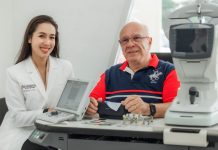This week, let’s look at cheap (generic) drugs. Most people here know that you can buy “brand name” medications, which tend to be expensive, or you can buy “copy” drugs that tend to be cheap.
At the outset, let’s just clear up what generics is all about. What you have to first realize is that all medications are chemicals, and somebody ‘invented’ it – these days, drugs are not naturally occurring substances. The ‘Trade name’ for the chemical compounds is owned by the manufacturing company, for example ‘Feldene’ is the compound piroxicam, or ‘Viagra’ which is ‘sildenafil’. Feldene and Viagra are trade names, given to the chemical compounds by the original manufacturer, while piroxicam and sildenafil are generics.
When you buy Feldene, you are getting the piroxicam chemical as invented by that manufacturer, with all the purity and quality controls that a major manufacturer has to abide by. However, when you buy piroxicam tablets, these can come from a little factory on a back street in Bangladesh or Pakistan, with all the hygiene standards being applied that you may or may not like to imagine! Likewise, your cheap blue diamonds, gentlemen, before you start laughing!
The large pharmaceutical companies legitimately say that if they do not have protection, they cannot recoup the cost of the development of the drug – in some cases, multi millions of dollars, and then develop new ones. However, if after it has been invented, Pakky Pills produce the drug cheaply after zero costs have been outlaid for its research, this is obviously unfair.
In some ways it is worse than ‘copy CDs’ where the artist is not getting paid for his work from the royalties coming from the sale of the CD. Sure you get a cheap CD, but the artist has been ‘robbed’.
Through this minefield walks the medical profession. In the developed world, on one side are the large pharmaceutical companies saying that they need the sales to cover and sponsor future research, but on the other side stands the government, saying that the public purse cannot afford these expensive medications, when cheaper, but chemically the same, alternatives are available. These two opposing sides have valid arguments that are quite understandable.
In the developing world it is a little different. The end point consumer does not have the money to buy the expensive original research manufacturer’s tablets, and neither do the governments (who in most cases do not have an all-encompassing health care systems).
To make it even more contentious, there are medications that could be called ‘essential’ for life. The ones that come immediately to mind are the AIDS treatment drugs. Can you justify withholding treatment from the poor (people or countries) just on price protectionism policies? Figures that have been published in Thailand claim that the same medication is available at costs to the consumers between 300,000 baht and 12,000 baht per year. For the poor, one is affordable, one is not. For government or charity purses, ditto.
My stance on generics falls between the two extremes. For non-essential drugs I believe the original manufacturer deserves a patent period and generics should not be sold within that time frame. During that time frame I would prescribe by trade name only and not generic. This covers medications such as yet another BP reducing tablet, of which there are scores, or another non-earth shattering antibiotic. These are not essential as there are many alternatives.
However, for essential medications, generics should be allowed and offered to developing nations, and to the poor, even though this may be within the time frame. In other words, let those who can afford it pay, and those who cannot should be assisted by the manufacturer, who can make their own generic equivalent, as well as licensing other manufacturers to make their drug.
So where do you fit into all this? First make sure that the ‘copy’ drug does contain what it is supposed to and that the drug is released from the tablet/capsule in the strength indicated. Or let your doctor prescribe – it’s much safer!




